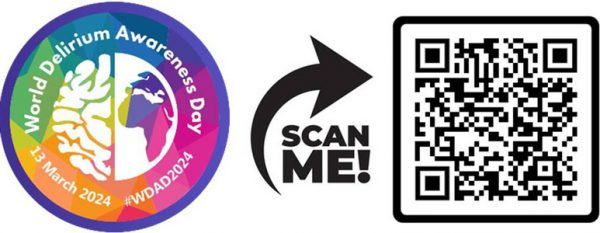
Karlene Willcocks, Executive Director
Today is World Delirium Day, where we raise awareness about this common yet often overlooked condition that affects millions of people worldwide.
It remains one of the most underdiagnosed conditions in a hospital setting.
Delirium is a condition whereby a person experiences serious changes to their mental abilities. It will affect one in four hospitalised older people. There are many possible causes of delirium so early recognition and intervention are critical in determining appropriate treatment.
World Delirium Day is a global initiative which strives to improve recognition, prevention and management of delirium, ultimately enhancing the quality of care for those impacted by this challenging condition.
Today, Caboolture Hospital hosted events on each ward to shine a light on the importance of humanising delirium care.
Senior Occupational Therapist Caitlin Garamy lead an in-service for nursing staff, focusing on delirium management and prevention.
When you get a coffee from The Common Good café today, look out for stickers with QR codes placed on coffee cups, providing easy access to valuable resources.

Additionally, posters and flyers are on display in the main foyer and throughout the hospital to spread awareness with patients, visitors and the community.
Delirium management is everyone’s business and we can effectively address it by using the PITCHED principles.
Please print this PITCHED poster and circulate to your clinical areas and staff to continue the management and prevention of Delirium at CKW:
- Pain: Assess regularly for pain and provide pain relief strategies
- Infection: Wound management, monitor for infections
- Thirst: Encourage fluid intake
- Constipation: Monitor bowl function
- Hunger: Monitor nutrition and aid those at risk of malnutrition
- Environment: Minimise bed moves, provide orientation to date and time of day. Ensure use of hearing or visual aids if required
- Drugs: Review medicines to identify any that may increase the risk of delirium and discontinue of appropriate.
Regards,
